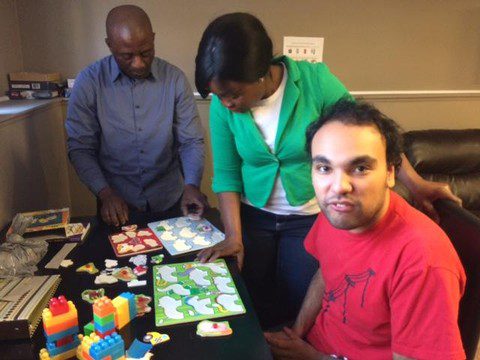How Much Does PDD Pay in Alberta?
To qualify for PDD, you must have a developmental disability from childhood. This ailment must be severe enough to impair daily activities and adult independence.
Read More
Feb 10, 2016
We support individuals ranging from 11 to 51 years of age, diagnosed with an array of disabilities. We have clients with Autism Spectrum Disorder, Fetal Alcohol Syndrome, genetic disorders, acquired and organic brain injuries, Attention Deficit Hyperactivity Disorder, Obsessive Compulsive Disorder and Global Developmental Delay.
No two individuals are alike. Our clients all differ in intellectual abilities ranging from very low functioning to fairly high functioning with strong independent skills. Clients all differ in communication; some are nonverbal, some communicate with visuals and pictures, others are strong at verbal communication.
It's a Herculean task to keep everyone on a regular, routine schedule and happy with few behavioural concerns. The big question is how we attain this state of equilibrium with our clients.
By focusing on positive attributes we can build the best possible routine for a client, full of activities they enjoy and become highly engaged in. Activities can range from working on puzzles, using building blocks, and typing letters or words on the computer, to jumping on a trampoline, bouncing an exercise ball, or playing with a bin of beans and rice for sensory stimulation. Some of our clients take pleasure in watching bits of paper fall, playing with Ziploc bags, or flipping a lid repetitively.
Thinking “out of the box” with people with developmental disabilities and accommodating to their world is better than expecting them to meet everyday social norms and trying to "normalize" their routines and interests.
To successfully build on an indvidiual's independent living skills it is imperative to capitalize on their interests, joys and positive features. By providing the opportunity to engage in activities that an individual is interested in, it gives motivation to attend to necessary daily tasks. For example, we may have a client on a routine where they first clean dishes, do laundry and then jump on the trampoline.
For individuals who experience a developmental disability it is extremely beneficial to be occupied with satisfying sensory activities and exerting physical energy through interests specific to the person. When needs and desires are being met and an individual is busy with things they find enjoyable there is less time for behavioural issues to occur. Hence our approach to be attentive to each clients’ interests, likes, dislikes and build on their skills slowly one day at a time with structured routines and activities.
Optimism is the faith that leads to achievement. Nothing can be done without hope and confidence.
- Hellen Keller
To qualify for PDD, you must have a developmental disability from childhood. This ailment must be severe enough to impair daily activities and adult independence.
Read MoreThis guide covers what FSCD offers and provides resources for more information. Knowing the program and eligibility requirements helps make the process smoother for applicants.
Read More